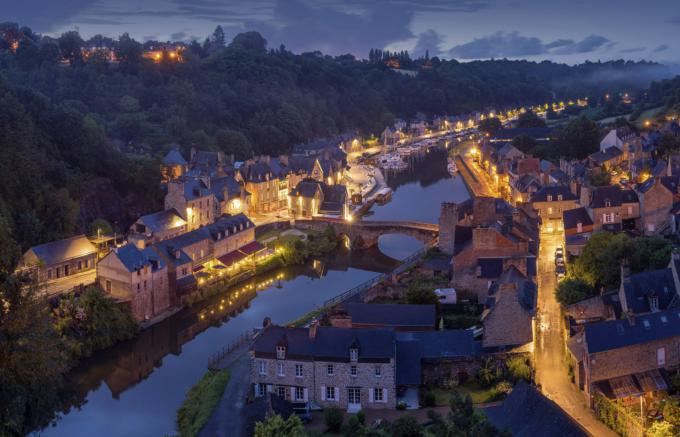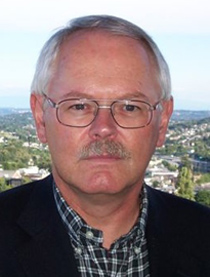
Spirituality
There was a town built alongside a river...

Rolheiser
Charity is about being good-hearted, but justice is about something more. Individual sympathy is good and virtuous, but it doesn't necessarily change the social, economic, and political structures that unfairly victimize some people and unduly privilege others. We need to be fair and good of heart, but we also need to have fair and good policies.
Jim Wallis, speaking more-specifically about racism, puts it this way: When we protest that we are not implicated in unjust systems by saying things like: "I have black friends", we need to challenge ourselves: It's not just what's in our hearts that's at issue; it's also what's at the heart of public policy. We can have black friends but if our policies are racist there's still no justice in land. Individual good will alone doesn't always make for a system that's fair to everyone.
And it's precisely on this point where we see the crucial distinction between charity and justice, between being good-hearted as individuals and trying as a community to ensure that our social, economic, and political systems are not themselves the cause of the very things we are trying to respond to in charity. What causes poverty, racism, economic disparity, lack of fair access to education and health care, and the irresponsibility with which we often treat nature? Individual attitudes, true. But injustice is also the result of social, economic, and political policies that, whatever their other merits, help produce the conditions that spawn poverty, inequality, racism, privilege, and the lack of conscientious concern for the air we breathe.
Most of us, I suspect, are familiar with a story that's often used to distinguish between charity and justice. It runs this way: There was a town built alongside a river, but situated around a bend so that the townsfolk could see only that part of the river that bordered their town. One day a few of the children were playing by the river when they saw five bodies floating in the water. They quickly ran for help and the townspeople they alerted did what any responsible persons would do in that situation. They took care of the bodies. Pulling them from the river they found that two were dead and they buried them. Three were still alive. One was a child for whom they quickly found a foster home; another was a severely ill woman, her they put in a hospital; the last was a young man and, for him, they found a job and a place to live.
But the story didn't end there. The next day more bodies appeared and, again, the townsfolk responded as before. They took care of the bodies. They buried the dead, placed the sick in hospitals, found foster homes for the children, and jobs and places to live for the adults. And so it went on for years so that taking care of the bodies that they found each day became a normal feature of their lives and became part of the life of their churches and their community. A few altruistically motivated people even made it their life's work to take care of those bodies.
But ... and this is the point, nobody ever went up the river to see from where and for what reasons those bodies kept appearing each day in the river. They just remained good-hearted and generous in their response to the bodies that found their way to their town.
The lesson is clear enough: It's one thing (needed, good, and Christian) to take care of the needy bodies we find on our doorsteps, but it's another thing (also needed, good, and Christian) to go upstream to try to change the things that are causing those bodies to be in the river. That's the difference between good-hearted charity and acting for social justice.
Sadly though, as good church-going Christians we have been too slow to grasp this and consequently have not brought the demands of Jesus and faith to bear as strongly upon the question of social justice as we have been to bring them to bear upon charity. Too many, good, good-hearted, church-going, charitable women and men simply do not see the demands of justice as being anything beyond the demands of private charity and good-heartedness. And so we are often good-hearted enough that we will, literally, give a needy person the shirt off our back even as we refuse to look at why our closets are overfull while some others don't have a shirt.
But this should not be misunderstood. The gospel-demand that we act for justice does not in any way denigrate the virtue of charity. Charity is still the ultimate virtue and, sometimes, the only positive difference we can make in our world is precisely the, one-to-one, love and respect that we give to each other. Our own individual goodness is sometimes the only candle that is ours to light.
But that goodness and light must shine publicly too, namely, in how we vote and in what public policies we support or oppose.
- Oblate Father Ron Rolheiser, theologian, teacher, and award-winning author, is President of the Oblate School of Theology in San Antonio, TX. He can be contacted through his website www.ronrolheiser.com.
Now on Facebook www.facebook.com/ronrolheiser
Recent articles in the Spirituality section
-
Pushed off the platformMichael Pakaluk
-
Advice to fathersMichael Pakaluk
-
The higher you go liturgically, the lower you should go in service of the poorBishop Robert Barron
-
The Easter Season is the fleshly seasonMichael Pakaluk
-
Ripley and RupnikEffie Caldarola





